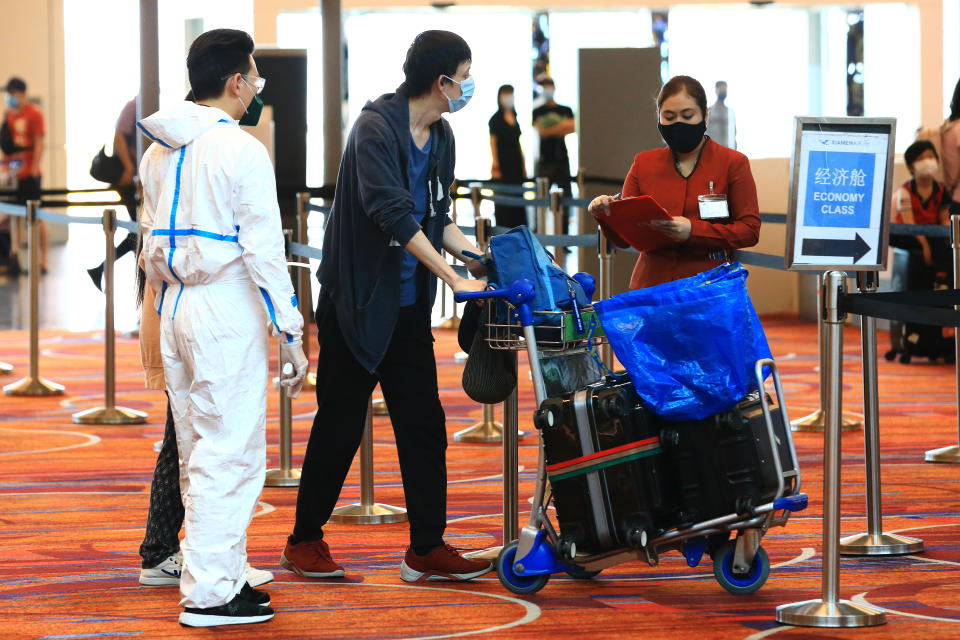Travellers with travel history to Australia's Victoria state, Japan, Hong Kong to serve SHN at dedicated facilities

SINGAPORE – Travellers entering Singapore after 11.59pm on Sunday (19 July) and who have recent travel history, including transit, to Australia’s Victoria state, Japan and Hong Kong within the last 14 days will be required to serve their Stay-Home Notice (SHN) at dedicated SHN facilities instead of their own place of residence.
In a virtual media conference on Friday evening, COVID-19 taskforce co-chair Lawrence Wong said that this action was taken “given the resurgence of cases in these regions”.
“Our border measures are not static. They are not cast in stone. We are constantly reviewing and updating them based on our assessment of the viral situation in different countries,” he said.
“And you can see around the world now, the number of cases globally continues to rise. It’s not plateauing. It is rising. In some countries, you’re seeing resurgence. In some countries, it has not even been controlled at all, and the cases are still accelerating. So, we really need to remain vigilant both at our borders in terms of the measures we have in place... as well as within our community.”
Within the local community, there was an average of around 12 new community cases a day over the past week, the Ministry of Health (MOH) said.
Around half of the community cases over the past two weeks are linked, it added. “We continue to actively test close contacts of confirmed cases to ring-fence possible onward transmissions, and regularly test targeted groups to help us detect unlinked cases in the community.” Of the unlinked cases, about seven in 10 were asymptomatic, and almost half are likely to be past infections as they tested positive under serology tests.
At the media conference, MOH’s director of medical services Kenneth Mak said, “We have also noticed that there were a number of transmissions occurring from the workplace. And clusters have arisen from some cases infected through the course of work and in turn infected household members. We continue to be aggressive or chasing these active clusters. We take aggressive public health measures to ring-fence and isolate all close contacts in order to disrupt any potential onward transmission.”
The ministry is focusing its attention on the number of unlinked community cases, said Prof Mak. Many of the unlinked cases are picked up from routine regular testing of frontline workers and those in the construction, marine and process sectors.
The MOH has also significantly scaled up testing of those with ARI symptoms at first presentation, and are now “testing around 2,400 ARI cases a day on average”, it said.
Stay in the know on-the-go: Join Yahoo Singapore's Telegram channel at http://t.me/YahooSingapore
More Singapore stories:
GE2020: WP's gains in northeast Singapore due to long-term resident engagement – analysts
MOE to train teachers in discussing race, language, religion issues: Ong Ye Kung
More wet weather in next fortnight, temperatures may dip as low as 22ºC
Woman, 20, who allegedly evaded taxi fare and hit elderly cabby with wooden pan arrested


